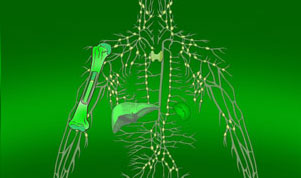
The COVID pandemic is spreading around the world with new energy and raises legitimate concerns among those in power about its further effects and the fear of all of us of getting seriously ill. Unfortunately, we do not have drugs to combat the development of COVID-19. A vaccine providing immunity, despite declarations that it already exists, from various centers working on it, should not be expected earlier than spring. Basically, the only procedure we can currently apply is a number of social and hygienic restrictions, including home isolation. It is also worth supporting our immunity, after all, we have an effective immuno-supplement with proven effects.
The course of COVID-19 disease can vary greatly. Some infected people have no symptoms. In others, the disease may be so severe that they require mechanical ventilation. The risk of severe COVID-19 is increased in older people, people who have co-existing diseases of the circulatory system, respiratory system, weakened immune system, significant obesity or diabetes.
COVID-19 and Respiratory System Diseases
Because COVID-19 primarily attacks the respiratory system, the coexistence of respiratory diseases significantly increases the likelihood of a severe course of the disease. This risk increases significantly if the infected person has chronic obstructive pulmonary disease (COPD), which is one of the most common chronic diseases in general, and also the most common respiratory disease. Its incidence is estimated at over 50% among people over 65 years of age. In the initial phase, the disease is hidden and it is estimated that up to ¾ of patients may not know that they have COPD, and the risk of severe COVID-19 is very high.
COVID and Cardiovascular Diseases, Diabetes, and Obesity
People with serious chronic diseases are more likely to develop serious symptoms if infected with COVID-19. This applies to diabetes, severe obesity and serious cardiovascular diseases.
Obesity promotes severe COVID-19. It is estimated that obesity occurs in approximately 1/4 of the UK population and increases with age*. It usually appears earlier and more often in men and black ethnicity.
Obesity is one of the risk factors for the so-called cytokine storm - the most severe complication in the course of COVID-19. Adipose tissue produces a number of pro-inflammatory cytokines that are released during the cytokine storm of COVID-19.
*source: Obesity Statistic UK 2023








